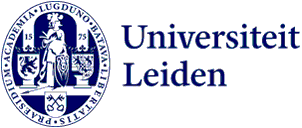
Nikki Ikani’s new book on crises and change in European foreign policy
Nikki Ikani, Assistant Professor Intelligence and Security at the Institute of Security and Global Affairs (ISGA), has recently published her latest monograph 'Crisis and change in European Union foreign policy' with Manchester University Press.

The book provides a novel analytical framework that serves to investigate the way in which the EU changes its foreign policy after crisis. It answers the question of how crises produce changes in specific European Union foreign policy areas, and how we should conceptualise these changes, expanding the typology of policy change proposed by Peter Hall. The book adapts the existing theorising of foreign policy change to a single framework applicable to the EU context, providing students and scholars with a toolbox to both explain the process of change and measure the policy change that follows.
EU foreign policy
By investigating a range of recent crises episodes and the way they sparked policy change (the Arab uprisings, the Ukraine crisis, the crisis in security and defence, the disinformation crisis and the migration crisis), the book advances on the fields of crisis governance, public policy studies and foreign policy analysis.
Further to offering those researching the EU foreign policy response to crisis with timely and empirically rich accounts of five recent change episodes, this book adds to the literature by suggesting two forms of EU foreign policy change, symbolic change and constructive ambiguity, which Ikani argues form frequent and important outcomes of the decision-making process. This typology is expected to be of added value of those studying policy changes in different settings.
Nikki Ikani is Assistant Professor Intelligence and Security at Leiden University at the Institute of Security and Global Affairs. She is also a Visiting Research Fellow at the War Studies Department at King's College London.
